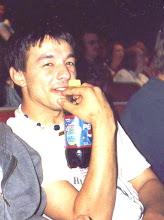Meth Kids, Part Three (Oregon)
While law enforcement officials try to get a handle on the meth epidemic in Southern Oregon, parents are looking for ways to prevent their children from becoming involved in the first place. In the final segment of NBC5's series Meth Kids, a Cry for Help, we will explore ways to prevent your children from falling victim to methamphetamine use.
Law enforcement officials say children are tempted with drug use on a regular basis. But when that temptation comes from a highly addictive drug it's up to us as community members to find new ways of prevention.
Lt. Mike Moran of the Medford Police says, "Meth has been a problem in Medford, Oregon since starting in the seventies and it caught on nationwide in the late nineties early 2000's we've always known it was a problem."
Methamphetamine use has skyrocketed across the country. But here at home law enforcement and drug awareness officials say prevention starts in the home.
Shawn Martinez is the Executive Director of Southern Oregon Drug Awareness. "The most important thing that can be done to prevent any substance abuse is parents."
Representatives from Southern Oregon Drug Awareness, as well as recovering addicts themselves, say that meth is a highly addictive drug. And because of what it is made of it doesn't take much to become addicted. Martinez says, "Parents need to make sure that they themselves know what meth is. And that it's the very toxic chemicals that are used to make meth. And make sure that they are aware of that and are talking to their kids."
Sarah Nork is a recovering addict. "It's a very powerful drug, addiction is a very powerful disease but meth in particular is especially right now it's becoming a sick trend."
That sick trend is turning up in schools, at social functions children and adolescents are attending, and in your very own backyard.
SODA's Martinez says, "I believe the highest reported use was by 11th graders at one of the Medford schools at 6 percent. So we are seeing an increase within the school as to the kids that are reporting the have tried it in the last 30 days."
Law enforcement officials are doing their part in keeping an open forum with students including going into schools and discussing drug use and prevention. Lt. Moran says, "Our school resource officers, as I mentioned we have two at each high school, one shared between two middle schools and they reach out to our schools elementary schools, so they're busy and they're trying to keep that connection and that message."
Meth is a part of our society and until we can remove that problem the best way to raise healthy children is to talk with them about the dangers of drug use. Lt. Moran says, "It begins with a very small child being a good role model but in terms of having a frank discussion with kids they are able to understand it at an earlier age than you would expect.
Martinez says, "Talking to your youth about all substances, alcohol, tobacco, marijuana, meth; it needs to be happening in homes sitting at the dining room table. Parents need to ask those important questions, who's my child hanging out with, where are they going what are they doing?"
Law enforcement officials, officials involved in drug awareness and prevention, and health care professionals say we need to break the addiction cycle and that can only be done by stopping addiction before it starts. If we can reach our children we can begin to bring hope to the meth epidemic.
Contact SODA for more information on ways to talk to your children and prevention at 541-608-4028. If you know of a child being affected by methamphetamine or would like to learn more about becoming a foster parent here in Southern Oregon please use the following numbers:
DEPARTMENT OF HEALTH AND HUMAN SERVICES (FOSTER CARE)
541-776-6120 X 264
JACKSON COUNTY DEPARTMENT OF HEALTH
541-774-8026
SOUTHERN OREGON DRUG AWARENESS (S.O.D.A.)
541-608-4028
OR EMERGENCY 9-1-1
http://www.localnewscomesfirst.com/content/view/822/2/


0 Comments:
Post a Comment
Subscribe to Post Comments [Atom]
<< Home